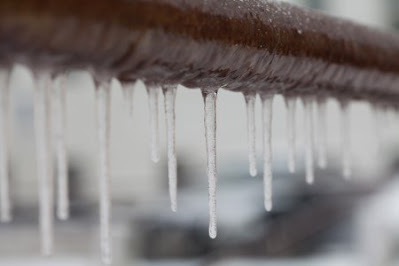
Frozen Pipes are the worst! Every Winter in the Illinois when the temperatures start to plunge, homeowners and businesses have to fear the dreaded frozen pipe issue that can arise.
Having frozen pipes is one thing, but if the pipes actually burst, it can become a huge nightmare and very costly. Depending where exactly a pipe bursts in your home or business can cause major flooding and property damage.
We here at Suburban Plumbing Experts are professional plumbers, and we know exactly how you can prevent frozen pipes. We have been helping customers with burst pipes and pipe thawing for over 25 years and know the proper steps to avoid your pipes from freezing!
We love to educate homeowners on how to prevent frozen pipes or having their pipes burst. One of the first steps to take is to winterize your home before Winter actually begins, usually around the end of November.
Pipe Thawing Specialists
The most common places for pipes to freeze are in crawl spaces, basements, garages, attics, and inside kitchen cabinets. Pipes that run along side of any of your walls usually have no kind of insulation and are capable of freezing once the temperature hits the freezing point. If you notice, when turning on any faucets in your home or business, that no water is coming out or trickling out of the faucet, there is more than likely a frozen pipe involved.
You need to be careful at this stage. A pipe could potentially have burst already and if you keep trying to run water, you will end up with a huge mess in your home or business. This is the time to actually turn off the water on the main shutoff valve. The shut off valve is usually in the same location as your water meter or where the main water line enters your home.
If you know for sure a pipe hasn’t quite burst, we suggest running very luke warm water through the lines to possibly start helping to unfreeze the pipes.
We do not suggest trying to go about thawing a frozen pipe by using a hair dryer or any kind of space heater as this could cause electrocution and/or more problems and cause the pipe to then burst with such sudden heat applied to it.
Instead, we highly suggest calling in a professional plumbing technician who is experienced in frozen and burst pipes and pipe thawing services.
In some cases you will have more than just one frozen pipe. This is when you can check other faucets in your home for similar problems.
If you are unable to find any sections of frozen pipe yourself or are unable to reach the area, again, the best bet is to call in a licensed plumber.
Preventing Frozen Pipes
Once you have gotten over your first frozen pipe experience, it is time to start thinking about future Winters. Be prepared in advance for the upcoming Winters in the years ahead. Taking the proper precautions now can lead to future head aches with your pipes.
Suburban Plumbing Experts suggests finding out exactly what pipes in your home are prone to freezing the most and taking note of those areas. Once you find these common areas of pipe that could freeze, you can insulate them safely on your own. Items such as heating tape, pipe sleeves, or pipe insulation are great for starters, and most of these products can be purchased at a Menards or Home Depot.
When the freezing temperatures do arrive, there are a few other steps you can take to prevent your pipes from freezing.
- Set your thermostat at one consistent temperature. Your energy bill may go up a bit, but it will be better than a burst pipe disaster! Keep the thermostat at this temperature even if you will be going out of town or vacation for numerous days. *Note that the thermostat doesn’t need to be set on a very high temperature, just a continuous and consistent one. 65-68 degrees is usually the best bet.
- Keep your garage door closed at all times during these frigid temperatures.
- Setting your faucets to trickle at all times to avoid pipes from freezing. (Even the slightest bit helps)
Adding More Insulation to Your Home
Personally, I suggest going this route from the get go. After having a burst pipe of my own soon after buying a new condominium, I learned the hard way of the seriousness of a burst pipe. Not only did my pipe burst from not taking the proper precautions, but my issue became the down stairs neighbors. The burst pipe ended up leaking into the unit below and caused flooding in which I had to deal with and pay for. Yikes.
Adding extra insulation in your home is key to both your pipes freezing and again, in my case, it helped tremendously with my energy bill! By adding extra insulation, sure it was a tad costly, but now I don’t have to worry about anymore burst pipes or high energy bills.
